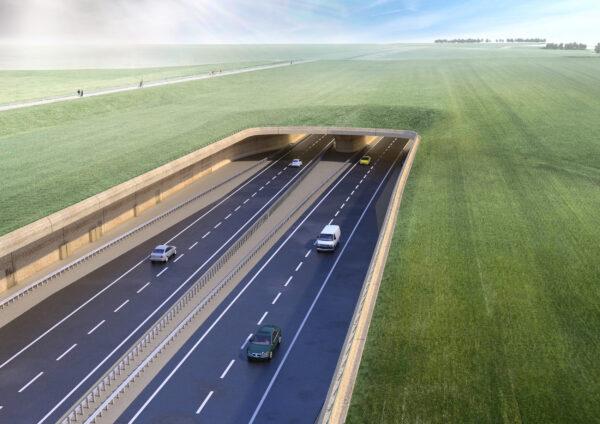A High Court judge has thrown out a legal challenge by campaigners to the government’s plans to build a £1.7 billion road tunnel near Stonehenge.
The single-carriageway A303, which runs close to the UNESCO world heritage site, has been plagued with traffic jams for years, and last year the Department for Transport (DfT) approved a plan to build a two-mile tunnel from Amesbury, Wiltshire, to Berwick Down.
Campaigners have claimed the project would have a devastating environmental impact on the stone circle, which was built around 5,000 years ago.
Planning permission was first approved in November 2020 by then-Transport Secretary Grant Shapps, despite advice from Planning Inspectorate officials who said it would cause “permanent, irreversible harm” to Stonehenge.
That approval was quashed by a High Court judge in July 2021.
Having addressed the points raised by the High Court, Transport Secretary Mark Harper gave the go-ahead last year, but Save Stonehenge World Heritage Site (SSWHS) challenged the decision again.
On Monday Mr. Justice Holgate dismissed their claim, saying most parts of their case were “unarguable.”
Government Was ‘Rightly Focused on Relevant Policies’
In his 50-page ruling, Judge Holgate said the DfT had “rightly focused on the relevant policies” and the campaigners had offered proof to give reason “for undermining that conclusion.”During a High Court hearing last year David Wolfe, KC, for SSWHS, accused the government of giving “unlawful consideration of alternatives” to the project.
Mr. Wolfe said National Highways had provided “fundamentally flawed” information about the possible “heritage harm” and gave “flawed analysis of likely traffic figures for the A303.”
James Strachan, KC, for the DfT, insisted the government’s approach was “consistent with the UK’s obligations” to world heritage convention and insisted the DfT would seek to “minimise harm” to the ancient henge.
The A303 is a major road between London and Exeter and is extremely busy, especially in the summer, as a gateway to the West Country for holidaymakers and hauliers.

The government said the benefits of the road tunnel “outweighed the harms.”
National Highways said the tunnel will remove the noise of traffic passing the site, which becomes a magnet for druids and pagans during the winter solstice in December.
After the ruling, David Bullock, National Highways’s project director for the A303 Stonehenge scheme, said: “We welcome the High Court’s decision and wait for conclusion of the legal proceedings. It is a positive step forward and would mean that at long last we can progress solving the issues of the A303 near Stonehenge.”
Historian Hits Out at ‘Pig-Headed Plans’
Historian Tom Holland reacted to the High Court ruling on Monday, writing on social media platform X, “Devastating loss, not just for everyone who has campaigned against the government’s pig-headed plans for the Stonehenge landscape, but for Britain, for the world, and for subsequent generations.”But he added, “The fight, however, goes on.”
On a crowdfunding website, SSWHS said the latest decision was a “cruel blow” but they promised to fight on and raise enough money to challenge the High Court ruling.
SSWHS said, “The new road and tunnel would cause massive and irreparable damage to the archaeological landscape in violation of the UK’s international commitment to safeguard the site for future generations.”
It pointed out that in 2020 a series of huge pits was unearthed at Durrington Walls henge, not far from Stonehenge, following on from the discovery of “important Mesolithic finds” at Blick Mead.
SSWHS said, “Who knows how much unknown archaeology would be lost by bulldozing great swathes of the landscape for a new road?”







